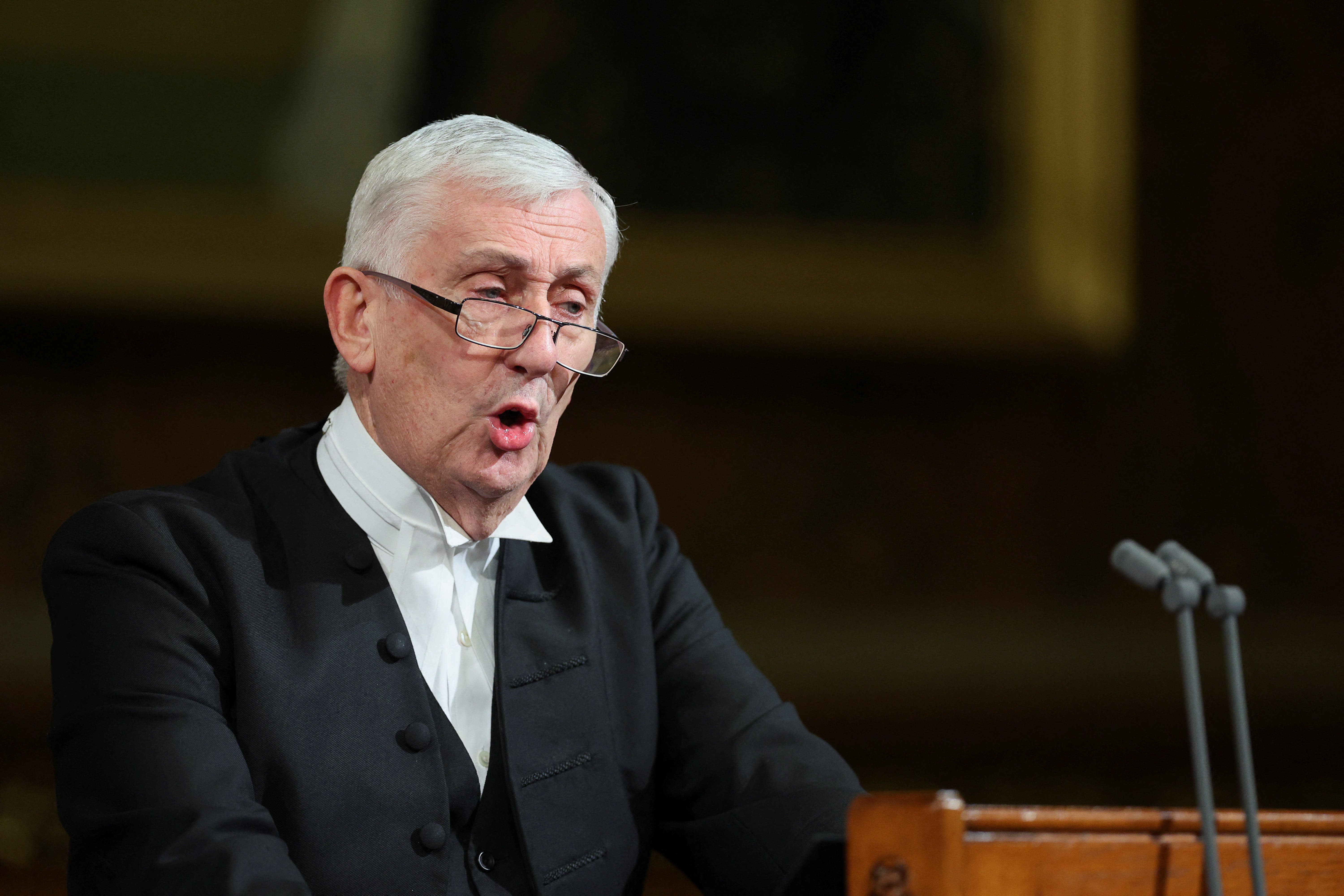Is the integrity of parliament being destroyed by the Commons speaker – and will he have to go?
Lindsay Hoyle must know that he cannot afford to alienate the party that is likely to form a government by the end of the year, writes John Rentoul. That may be disgraceful – but it is politics


Lindsay Hoyle bungled it, as he admitted in a near-tearful statement from the speaker’s chair last night. “It ended up in the wrong place,” he said.
He can say that again. He changed the rules yesterday to allow a vote on Labour’s “immediate ceasefire with conditions” amendment, which meant Keir Starmer avoided a rebellion by his more pro-Palestinian MPs.
The speaker might have got away with it. He argued that he was trying to allow each of the three main parties a chance to vote on their own policy, which would have been perfectly reasonable had it not been for two things.
One was that he was so desperate to defend himself against the charge of helping out the Labour leader that he said he was “very concerned … about the security of members, their families and the people involved”. He implied that he had changed the rules to protect Labour MPs from the threat of violence if they failed to vote for a ceasefire.
This was an appalling suggestion – that parliament had given in to intimidation by thugs. He repeated it today, but I don’t think it is really true. I suspect that Labour may have used that line to try to persuade the speaker to get them off the hook of a split – but it is a dangerous game for Labour and for the speaker to play.
The other mistake the speaker made was that he failed to change the rules back again when the Conservatives pulled out of yesterday’s votes. This cynical strike had the effect of wiping out the vote on the Scottish National Party motion. All the speaker, or his deputy Rosie Winterton, had to do was to reverse the order of last night’s votes, so that MPs could vote on the SNP motion first and then on the Labour amendment.
The outcome would have been the same, but the SNP’s honour would have been satisfied. It would have drawn much of the sting of the attacks on the speaker, but it seems that Hoyle was not agile enough to improvise at the last moment.
The Tories would still be complaining about Hoyle’s perceived partisanship, but ultimately they do not want to get rid of him. Penny Mordaunt, the leader of the Commons, confirmed that today, saying that the chaos of last night’s votes was not his fault: he was the victim of bullying by a “fickle and ruthless” Starmer.
Her powerful performances at the despatch box yesterday and today have done no harm to her leadership ambitions. She has skilfully turned the attack to Starmer, obscuring the Tories’ role in triggering the procedural crisis.
She also said, in effect, that the government does not intend to use its majority to get rid of Hoyle. This was never likely. There are a lot of Tory MPs who support him – including Ben Wallace, the former defence secretary, Robert Buckland, the former justice secretary, and Edward Leigh.
It would, in any case, have been a bad idea for the government to try to replace him. Headlines such as “Rishi Sunak installs Tory puppet as Commons speaker” would have looked bad. So the officers of the 1922 Committee, representing Tory backbenchers, can rant and rave – but they cannot blow the speaker’s house down.
The prime minister might be quite happy, to be cynical, to allow the storm to rage on for a few days. In his eyes, it might encourage Hoyle to be more helpful to the government side of parliament between now and the election.
After the election, of course, if there is a Labour government, he can expect to be re-elected speaker. I don’t know if Starmer or anyone on his behalf threatened Hoyle with losing his job unless he changed the rules to avoid a Labour rebellion. It was striking that the speaker denied last night that he had met Sue Gray, the Labour leader’s chief of staff: “I did not bump into her today.”
But no one would have needed to make an explicit threat. Hoyle must know that he cannot afford to alienate the party that is likely to form a government by the end of the year. That may be disgraceful, but it is politics.
What is truly disgraceful is that Hoyle would rather be accused of changing the procedures of the Commons to appease threats of violence than be accused of favouring the Labour Party.






Join our commenting forum
Join thought-provoking conversations, follow other Independent readers and see their replies
Comments